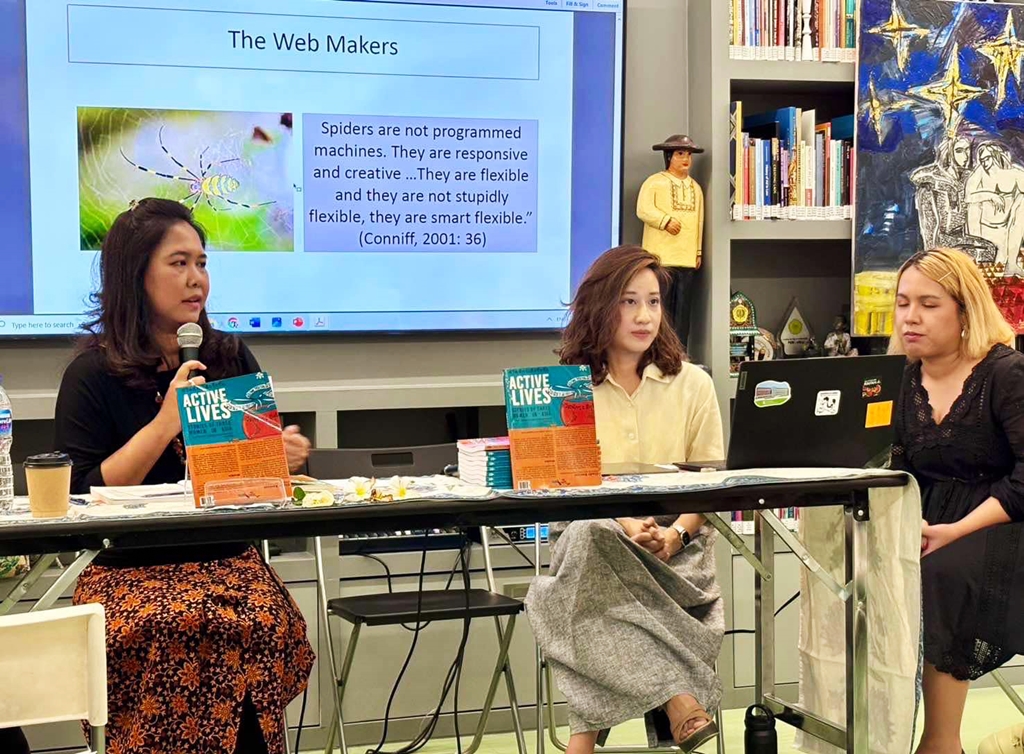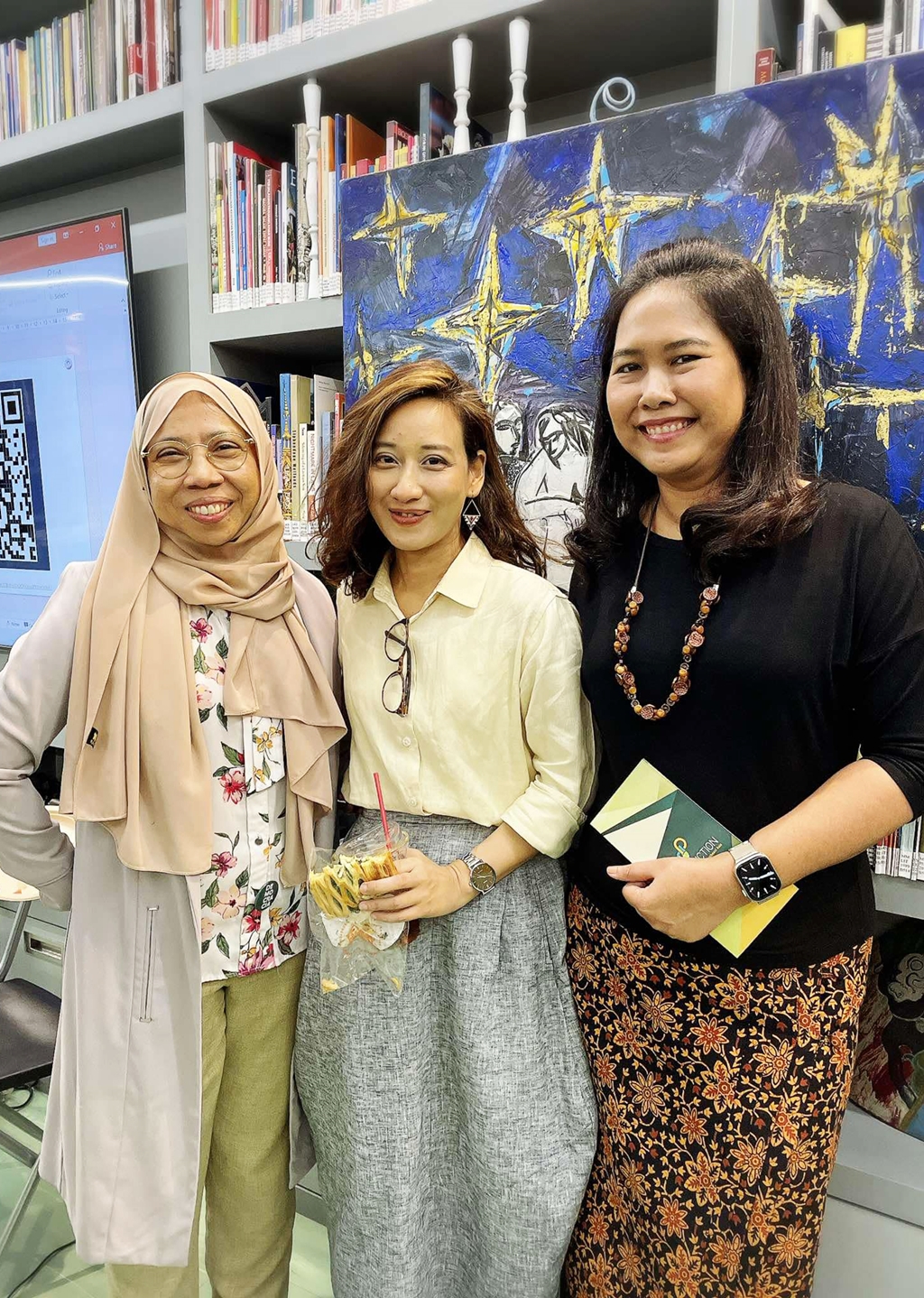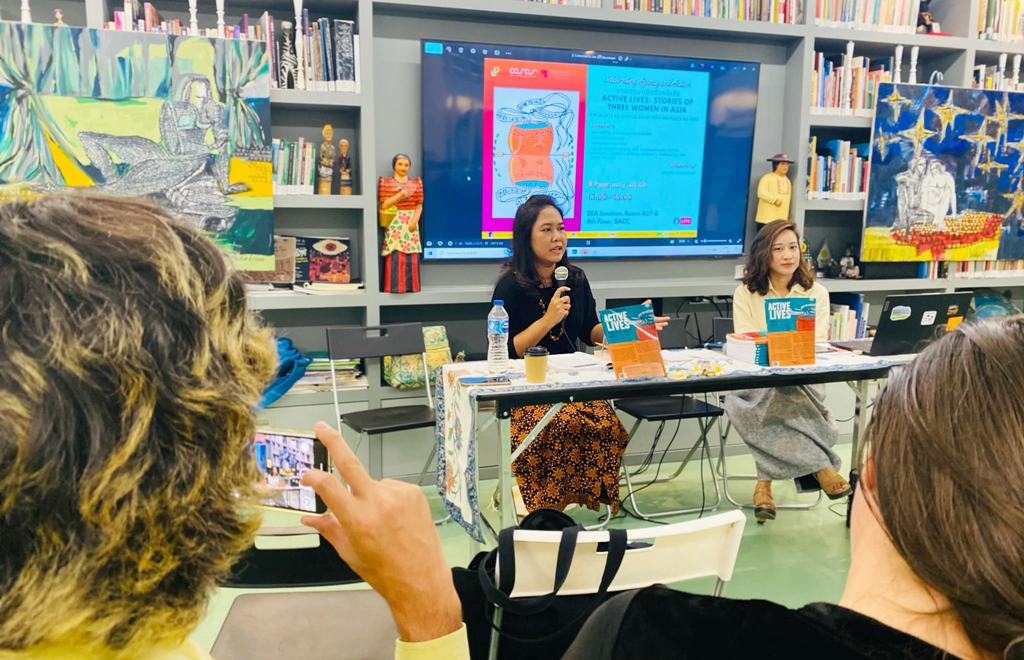
Sunday 9 February Dr. Suphatmet Yunyasit attended the book launch event organized by Center for Contemporary Social and Cultural Studies, Faculty of Sociology and Anthropology, Thammasat University and SEA Junction. The book entitled “Active Lives: Stories of three women in Asia” introduced and discussed at the 3-hour event was born from a project initiated by Associate Prof. Dr. Ana Gretel Echazú Böschemeier, an Argentinian academician and anthropologist who is currently teaching at Federal University of Rio Grande do Norte, Brazil. Dr. Ana had served as a visiting fellow at The Asian Institute of Technology, Thailand, in 2021-2022. During that period Dr. Ana was interested to learn about the situations of women engaging in activism in South and Southeast Asia. She chose to interview 3 leading female activists-scholars, namely Assist. Prof. Dr. Amporn Mardent, Dr. Morina Ashan and Ven. Dhammananda of Songdhamkanlayani temple and attempted to present the three women’s insights into the situations of women facing social discriminations, violence, and social injustice as well the strategies they use to overcome the challenges they faced in their works.
After the chapter by chapter presentations by the author and co-authors, Dr. Suphatmet gave her reflection and comments on the book. Firstly, she expressed her gratitude for having the opportunity to review the book. From her anthropological perspective and experience working for peace in the deep south of Thailand, the book has a lot to offer to the society. Providing a rich social-cultural context of both Thailand and Bangladesh, the authors help readers gain a better understanding about the situations and roles of women in conflict transformation and peacebuilding in South and Southeast. She also addressed that the women whose stories were featured in the book have shown various traits of peacebuilder-agent of change mentioned by John Paul Lederach in his important book ‘The Moral Imagination’. There are 4 traits emerged from their stories: the capacity to imagine relationship, the practice of paradoxical curiosity, the creative act and the willingness to risk. These traits contribute positively to their achievements and the consolidation of their women networks. These women also have another key shared trait: their hunger for new knowledge. This allows them to be adaptive and flexible towards the changing circumstances and, accordingly, helps them to maximize their already existing potentials to mobilize for social change.




